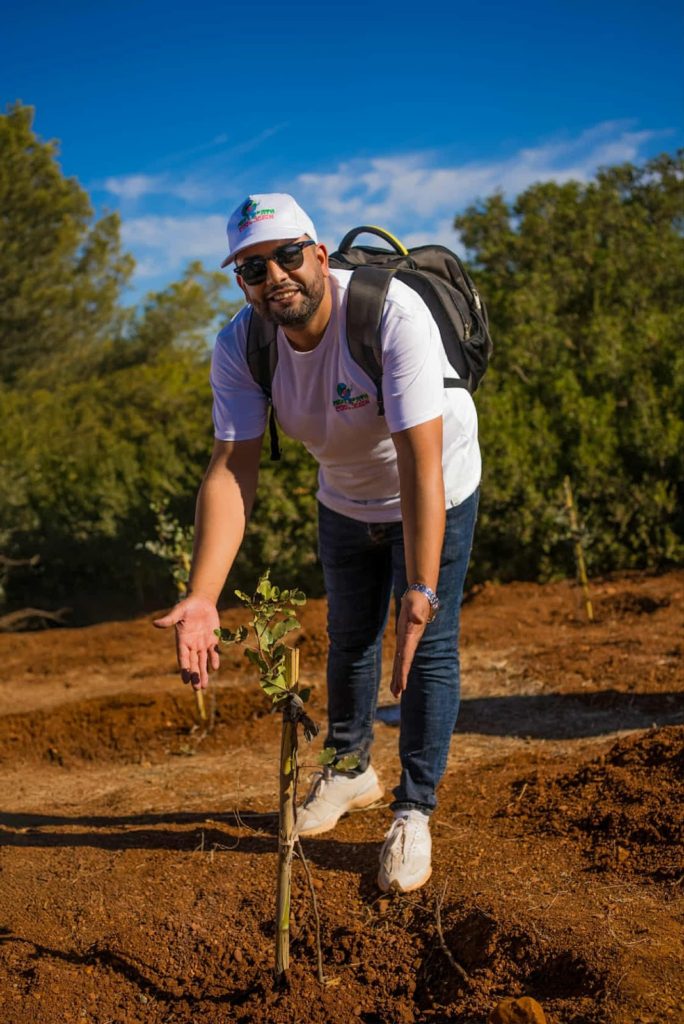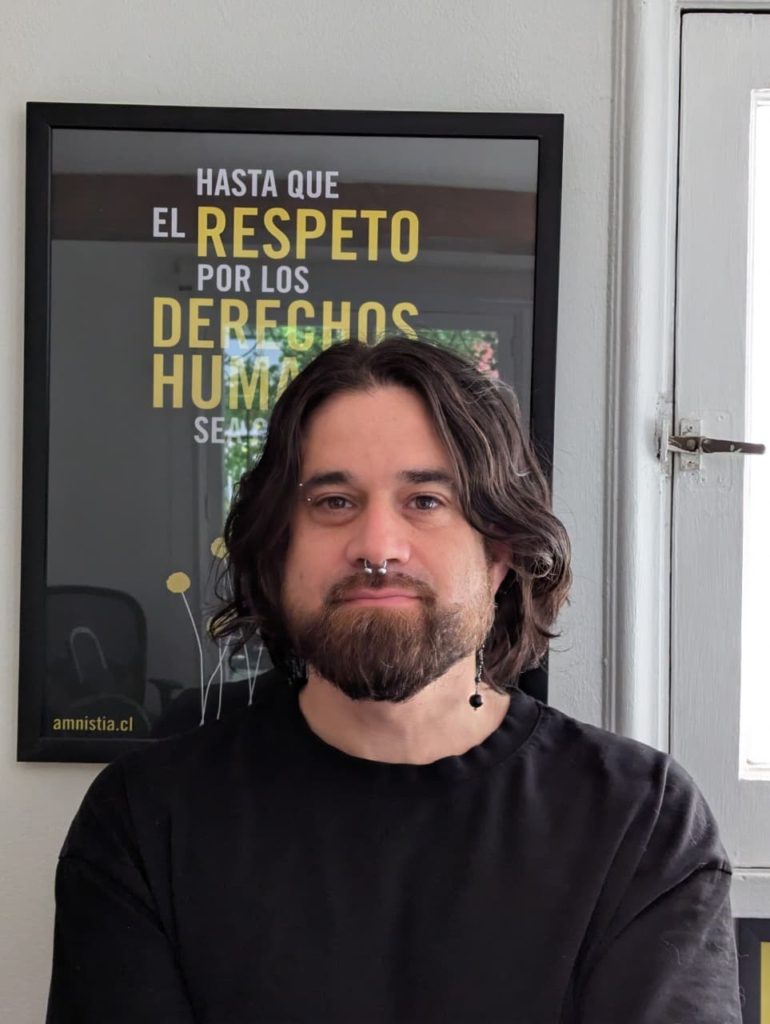*Names changed to protect identities
Kenyan authorities systematically deployed technology-facilitated violence as part of a coordinated and sustained campaign to suppress Generation Z-led protests between June 2024 and July 2025 against corruption and the introduction of new tax legislation, a new Amnesty International report shows.
The report, “This fear, everyone is feeling it”: Tech-facilitated violence against young activists in Kenya, shows how government and allied groups are increasingly weaponizing digital platforms to stifle protests as part of broader repressive measures designed to shut down digitally-organized dissent.
“Our analysis of online activity throughout several waves of protests in 2024 and 2025 and the interviews we’ve conducted with young human rights defenders, clearly demonstrate widespread and coordinated tactics on digital platforms to silence and suppress protests by young activists, including through online threats, intimidating comments, abusive language, smearing, and targeted disinformation,
Agnès Callamard, Amnesty International’s Secretary General
“Our research also proves that these campaigns are driven by state-sponsored trolls, individuals and a network of people paid to promote and amplify pro-government messages with the aim of reaching Kenya’s top daily trends on X.”
Between June and July 2024, Generation Z – young people aged under 28 – led the #RejectFinanceBill protests opposing proposed taxes on essential goods and services. Between June 2024 and July 2025, young people also organized protests on and off-line demanding an end to femicide and corruption.
Major demonstrations took place across 44 of Kenya’s 47 counties including Nairobi, Mombasa, and Kisumu. Social media played a major role in the organization of protests and amplification of protest voices.
Kenyan authorities responded with online intimidation, threats, incitement to hatred, and surveillance interfering with rights to freedom of expression and peaceful assembly. Online harassment and smear campaigns became core state tools to undermine the credibility and reach of government critics. Some of these tactics facilitated and were later used to justify arrests, enforced disappearances and killings of notable protest organizers.
Amnesty International estimates that, across both sets of protests, excessive use of force by security agencies resulted in at least 128 deaths, 3,000 arrests and over 83 enforced disappearances.
Targeting human rights defenders
Of the 31 human rights defenders (HRD) interviewed, nine reported receiving violent threats via direct and public messages on X, TikTok, Facebook and WhatsApp during the 2024 protests.
“I had people coming into my inbox and telling me, ‘You will die and leave your kids. We will come and attack you,” said Mariam*, a 27-year-old Mombasa-based HRD who was forcibly disappeared by police for two nights in 2024.
Another HRD, Joseph, * received a direct message on X reading: “We are coming for you.”
The research shows coordinated campaigns against young HRDs through state-supported trolling, and the spreading and amplification of hatred towards them.
“They want to maintain their social media image, and that means anytime you post something about a certain ministry or individual, they always send what we call the 527 bloggers. These are government paid bloggers whose job is to abuse you, to say very dehumanizing, demeaning things,” said Joshua, a student leader who survived enforced disappearance.
Much of the online violence is delivered through public posts and comments organized to cause harm. X (formerly Twitter) is central to pro-government networks spreading disinformation and smear campaigns. The networks mass-posted identical messages repeatedly to hijack X’s algorithm and maximize visibility of government sponsored messages.
Hanifa Adan, a prominent Kenyan journalist and HRD of Somali descent was described in social media posts, as a “foreigner,” a “fool” and “a Somali terrorist.”
“Having strangers say things about you every single day, being targeted every single day, it’s hard. It took away the spark, the joy. It took away who I was,” she told Amnesty International.
Coordinated online attacks
In April 2025, suspected state-supported trolls used the #ToxicActivists campaign to target Hanifa Adan after she gave an interview for BBC’s “Blood Parliament” documentary, which investigated the shooting of several protesters on 25 June 2024 and the alleged Kenyan military involvement.
Organized trolls posted Islamophobic imagery and repeated posts to discredit her and other prominent Kenyan activists as financially driven and corrupt.
These campaigns also illustrate X’s failure to adequately address organized threatening campaigns, which are against its own policy.
“The chilling effects of such harassment and incitement to violence goes far beyond their immediate targets. It must be stopped before it silences critical voices, undermines civil liberties and fosters a culture of fear irreconcilable with our constitutional freedoms,
Irungu Houghton, Amnesty Kenya Executive Director.
Young women who participated in the Gen Z protests and the #EndFemicideKE campaign reported misogynistic comments, body shaming, threats, doxxing and AI-generated pornographic images produced to shame, threaten and silence them.
“We are being forced to shut up, it’s an attack on our voice, on our bodies,” said Sarah*.
False and harmful narratives spread against HRDs included claims that survivors of enforced disappearances had staged their own abductions.
John*, runs paid coordinated campaigns on X for political and commercial clients. He told Amnesty International that he’s part of a network of around 20 people paid between 25,000 to 50,000 KES (approximately USD $190-390) per day to promote and amplify pro-government messages with the aim of reaching Kenya’s top daily trends on X.
“Most of the things you see trending in Kenya, I’m among the people doing that,
John*.
During large protests, his network created counter-campaigns and hashtags in real time to drown out trending protest hashtags. For example, the popular protest hashtag #RutoMustGo was countered with #RutoMustGoOn.
In response to Amnesty’s findings, Kenya’s Interior Cabinet Secretary, Kipchumba Murkomen, said, “The Government of Kenya does not sanction harassment, or violence against any citizen. All security agencies are required to operate strictly within the constitution, the National Police Service Act, and all applicable laws and any officer implicated in unlawful conduct bears individual responsibility and is subject to investigation and sanction in accordance with the law.”
However, Amnesty research indicates otherwise. The failure of both state authorities and corporate actors to investigate credible claims of unlawful tech-facilitated surveillance undermines human rights by fostering widespread chilling effect on the right to expression and peaceful assembly.
HRDs interviewed by Amnesty International believe that state surveillance was supported by Safaricom, one of Kenya’s biggest telecommunications companies, allowing clandestine police units to track activists involved in the protests. Evidence points to many of them being subsequently forcibly disappeared.
In response to the allegations, Safaricom said it “only shares customer data through lawful means and for lawful purposes. Our client confirms that their systems are not designed to track the live location of any subscriber, and such functionality does not exist within their operational architecture.”
Amnesty International also approached X, other Kenyan authorities and key individuals named in this report but did not receive a response.
Amnesty International calls on the Kenyan government to stop tech-facilitated state violence against peaceful protesters and civil society organizations, troll campaigns and smear narratives that vilify critics as “paid activists” or “foreign agents.”
Kenyan authorities must also launch an investigation into enforced disappearances, unlawful killings and the reports of unlawful surveillance during the “Gen Z protests.” Victims of unlawful use of force and family members of those killed must be adequately compensated.
The post Kenya: Authorities weaponized social media and digital tools to suppress Gen Z protests appeared first on Amnesty International.








